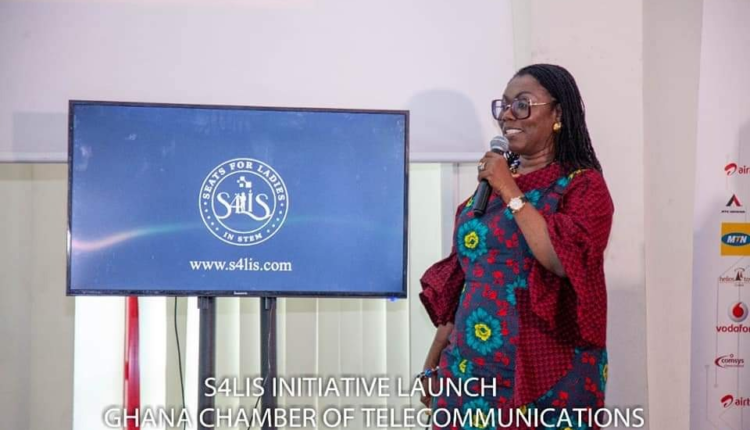The Minister of Communications and Digitalisation, Ursula Owusu-Ekuful has advised young girls not to shy away from Science, Technology, and Engineering and Mathematics (STEM) education.
Instead, she said they should participate more in STEM related courses and be able to stand out among their peers as they view the world from a different perspective.
Mrs. Owusu-Ekuful who gave the advice at the closing ceremony of the 2022 Seeds for the Future Program in Accra explained that STEM education was necessary in enhancing their digital skills to shape and better their lives.
“Careers are gender-neutral, don’t shy away from choosing STEM as your lifetime career, nor should you be afraid to demonstrate your leadership skills. The collaboration in the ICT industry requires new power, as well as the power of females” she said.
The eight-day Seeds for the Future program which offered about 50 outstanding Ghanaian tertiary ladies the opportunity was designed to help them learn about the latest trends in digitalisation and enable them to explore how digital technologies can be used to address common societal problems.
The project is an initiative started in 2021 under the Huawei Seeds for the Future digital skills training program.
The Minister commended Huawei for its commitment for such an initiative adding that would go a long way to harness the potential of young women, and enable them to compete equitably in the ICT space.
Girls in ICT
According to her, Huawei, in partnership with the Ministry of Communications and Digitalisation has successfully trained over 25,000 Senior High School (SHS) Girls in Cyber Security and Privacy Protection this year, with over 40 Senior High Schools benefiting from the initiative.
She encouraged beneficiaries of the program to take the intensive online training seriously and place Ghana on top of the Global Seeds ladder.
“I must add that digital adoption and use can also offer women, and girls, in particular, opportunities to overcome hurdles they may face in the physical world. Digital access can empower women and girls, help expand their sense of self in the world, increase civic engagement, and raise awareness of their rights.
“It will also facilitate flexible working hours, enabling women to combine their caregiving roles and careers effectively, working from home with digital platforms,” Mrs. Owusu-Ekuful said.
STEM Guidelines
In another development, the Ablekuma West lawmaker gave strategic guidelines that can be implemented to improve the participation of young ladies and working women in STEM.
The Minister’s steps she indicated was out of a recent survey commissioned by Microsoft, adding that, increasing women’s participation in STEM careers has the power to close the gender pay gap and boost women’s cumulative earnings by high amount, to expedite global economic development.
“Provide role models. Girls and young women have a hard time picturing themselves in STEM roles. Seeing women who work in STEM and technology helps remind girls they have a place in these fields if they want it. Generate excitement. Girls want to be creative and have a positive impact on the world.
“Provide hands-on experience. Girls who participate in STEM clubs and activities outside of school are more likely to say they will pursue STEM subjects later in their education. We can bring the experiential learning that girls want into more classrooms. Provide encouragement. Girls who feel supported by teachers and parents show more interest in continuing with STEM in their future. Encourage a “growth mindset”. Girls are willing to work hard to succeed” she detailed at the launch of the seats for ladies in STEM initiative (S4LIS) on Wednesday December 14, 2022 at the Ghana-India Kofi Annan Center of Excellence in ICT.
Gender Inequality
She added that, gender inequality had put females at a disadvantaged position, curtailing their development and growth.
That, she said, was evident in the gender gap in many industries, including the telecommunication sector, adding that the nation is gradually making progress in female education in STEM-related fields.
According to her, women were underrepresented in STEM education and careers due to entrenched cultural and traditional norms and the perception that STEM was a male domain because “boys and men are just better at it than girls”.
“Gender inequality is one of the problems that have gained much attention at the global stage and at many international stages. It has taken centre stage in policies of many Governments especially in Africa. Any development agenda being championed by Governments cannot gloss over the need to implement interventions to address the inequality in the education and specific job environments. While it has positioned the female gender in disadvantaged situations and thereby curtailed their growth and development, it has also compromised the optimal utilization of human capital in various countries.”
“There is a lot of pressure being put on women but such similar pressure is not being put on men to choose between a career, relationship and marriage,” she added.


Comments are closed.